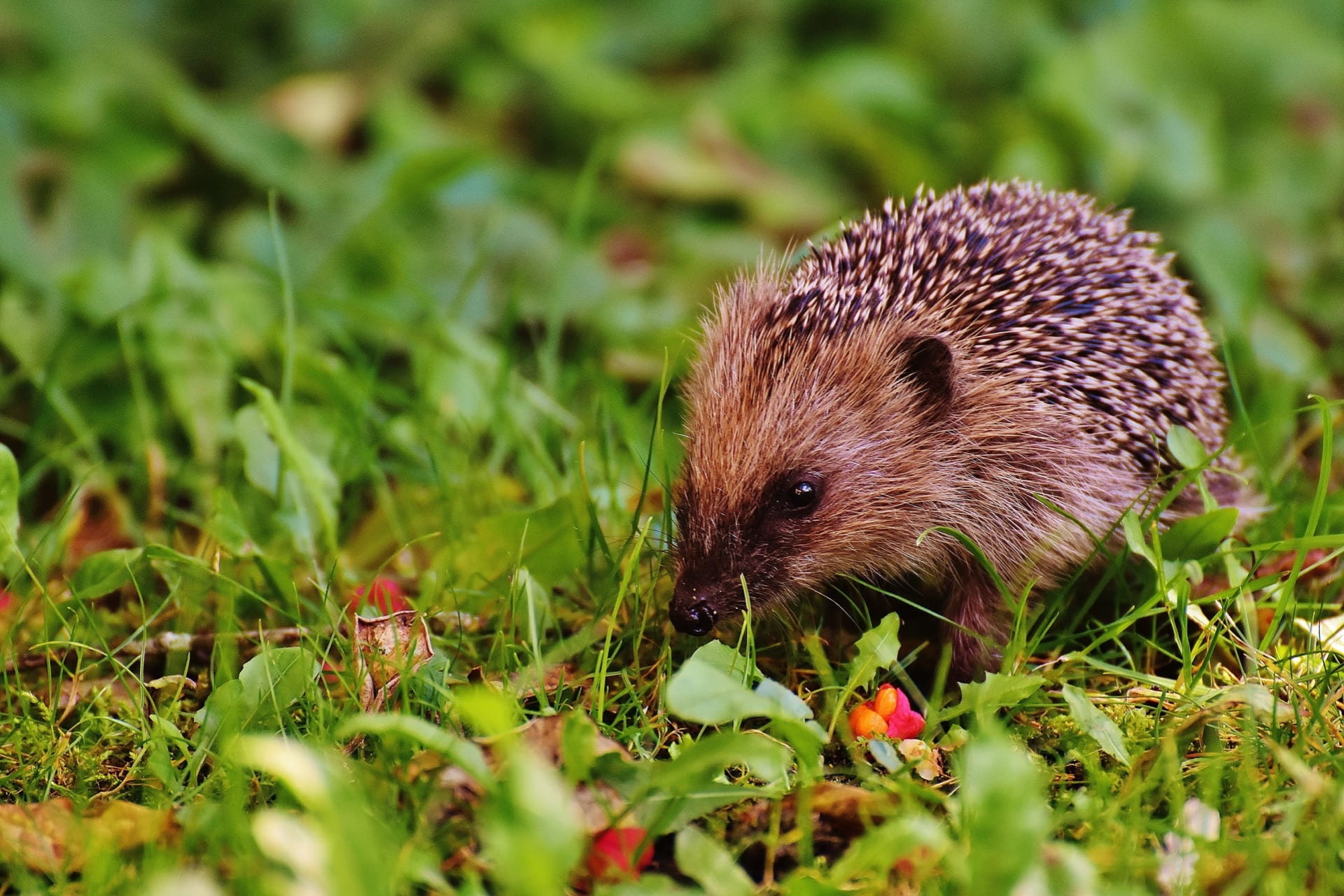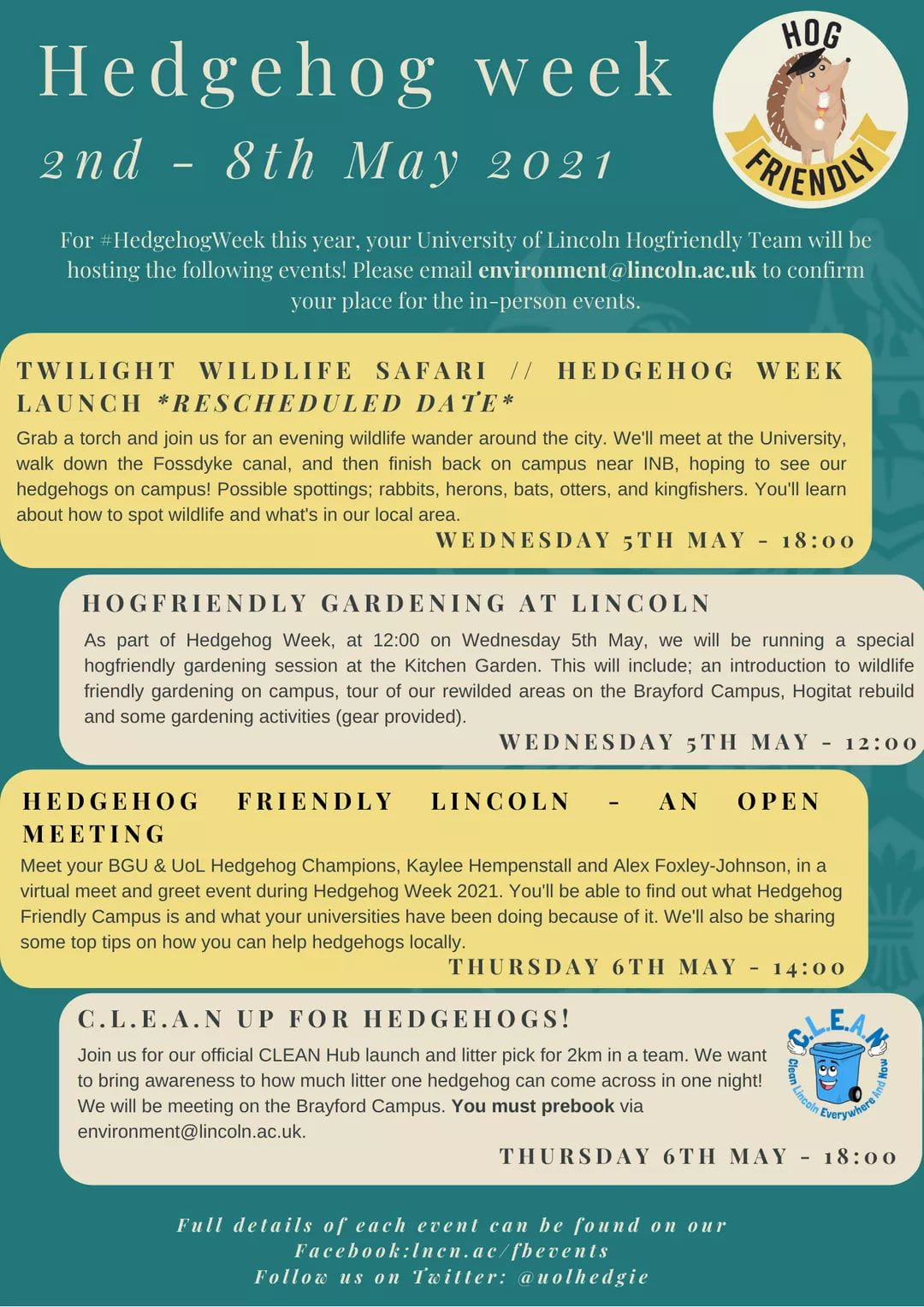Hi there! I'm Rachel, a postgrad student studying Clinical Animal Behaviour from London. I'm a big 80s music fan, and have a secret love for Marvel movies.

Hedgehog Awareness Week – what you can do
May 5, 2021,
read.
The 2nd – 8th May marks Hedgehog Awareness Week and to celebrate, I wanted to share with you what you can do if you come across hedgehogs and perhaps inform you of a few facts that you probably didn’t know about them! Additionally, the UoL Hedgehog Friendly Team have compiled a series of events this week that you can take part in, all in aid of honouring hedgehogs.
You find a hedgehog, what should you do?
Hedgehogs are nocturnal creatures, often living in woodland areas and in gardens. If you come across wild hedgehogs, you first need to check whether it’s in need of assistance. If you find a hedgehog that’s clearly injured, trapped, wobbly when it walks, lethargic, has flies around it, or just a single hoglet (baby hedgehog) on its own, please follow these steps here and contact the British Hedgehog Preservation Society at 01584 890 801.

Did you know? Hedgehogs have no fight or flight response, so if you come across one in your garden they probably won’t run away!
If you find a healthy hedgehog on the other hand, and you know it’s a frequent resident in your garden, create a habitat for it! Grab some logs, leaves, twigs, sticks and gardening gloves (for your protection). Pile them together in a quiet corner of your garden ensuring it’s secure. You can also provide a feeding site for it too. Recommendations state that dry cat and/or dog food is the ideal captive diet for hedgehogs, alongside a shallow bowl of water. Do not feed hedgehogs milk or any dairy product as they are lactose intolerant.
The British Hedgehog Preservation Society
It was the British Hedgehog Preservation Society (BHPS) that actually came up with Hedgehog Awareness Week, and has been running since 1982. BHPS’ purpose is to protect hedgehogs native to the UK through education, research and advocacy.
Their three missions are;
- To encourage and give advice to the public concerning the care of hedgehogs particularly when injured, sick, treated cruelly, orphaned or in any other danger.
- To encourage children to respect our natural wildlife by supplying information and giving lectures, thus fostering an interest in hedgehogs.
- To fund research into the behavioural habits of hedgehogs and to ascertain the best methods of assisting their survival.
Hedgehog Friendly Campus

The British Hedgehog Preservation Society created a national biodiversity program to encourage schools, colleges and university grounds to be hedgehog safe. The University of Lincoln joined the program back in 2019, and in 2020 received the bronze award. In March 2021, Lincoln received the silver award and is now just one of 20 to have gained it. The Hedgehog Friendly Campus team at Lincoln have run an array of events over the past two years to assist in boosting hedgehog populations. These included public webinars and ‘how to’ guides on creating habitats around campus.
Hedgehog Awareness Week 2021: 2nd – 8th May
The Hedgehog Friendly Campus team have arranged a series of events for this week. On Wednesday 5th, there is a ‘twilight wildlife safari’ where the team and yourself will wander around the city in an attempt to spot some of the amazing wildlife in Lincoln. Sightings could include rabbits, herons, bats, otters and kingfishers! There will also be an event focusing on hog-friendly gardening teaching you how to rebuild habitats midday on Wednesday. Then on Thursday 6th there is a virtual meet and greet with the BGU and UoL hedgehog champions Kaylee Hempenstall and Alex Foxley-Johnson to find out what both campuses in Lincoln have done to be hedgehog-friendly as well as a mass litter pick in the evening. If you’re interested in taking part in any of these activities, email environment@lincoln.ac.uk.

For more information:
Twitter: https://twitter.com/UoLHedgie
- Topics
- Animals
- Environment
- Hedgehogs




